Plants thrive when consuming purified water. Reducing the potential of harmful chemicals in your water supply, while ensuring there are natural minerals, is essential for plant growth and ensuring plants are properly hydrated.
Going further, high-quality water builds plant resilience from challenging conditions!
So what can be done? Rainwater, tap water, bottled or distilled water are common plant water sources. However, some will support plant health and others can strip healthy minerals from the soil and be detrimental.
You can easily improve plant health by getting a better source of water, or opting for a water revitalizer that’s proven to improve plant health and boost the yield of your garden!
How can you improve your water quality when watering plants? We are here to answer that!
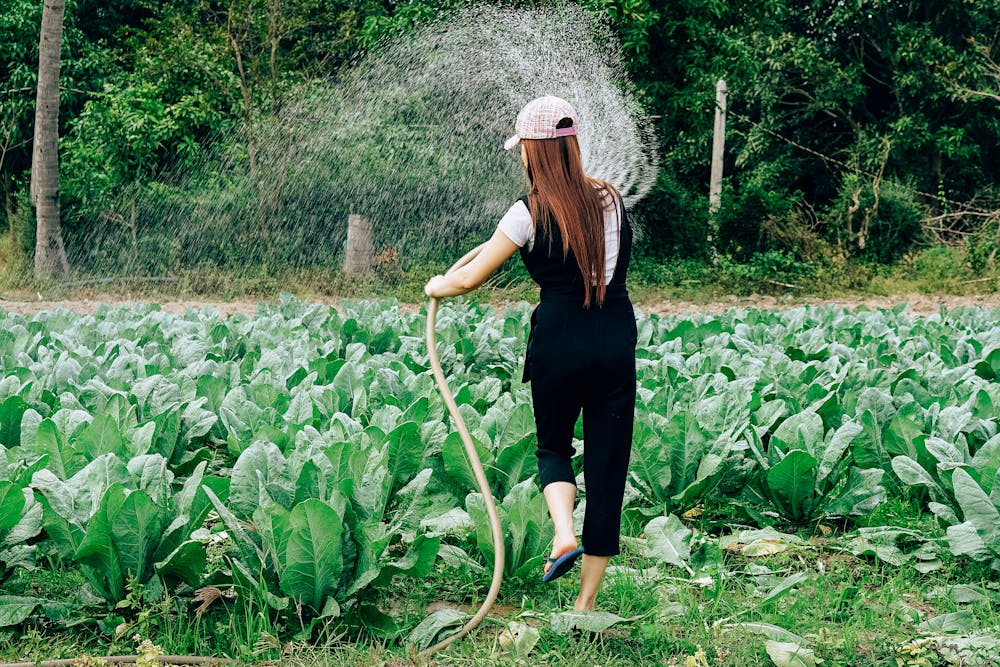
Purified Water for Plants – Why is it Important?
Water from your tap differs in every town, state, and country. For optimal water, you might need to remove heavy metals, chemicals, or other harmful contaminants commonly present in town or city water supplies.
Many aspects influence your water quality including the water source, storage, piping, and municipality sanitation chemicals. Unpurified water can exacerbate plant sickness symptoms including root rot, fungal diseases, leaf spots, and discolored leaves.
Common water issues:
- Corroded water pipes – Old pipes often dissolve or flake lead and other toxic metals into your home plumbing.
- Heavy metals from the environment that end up in your water supply – Rivers, lakes, and streams are becoming more polluted, requiring testing and a more conscious effort to ensure it’s clean and safe.
- Balancing the pH level – Optimal water should have a neutral pH, somewhere around a pH of 7. Most plants enjoy this, although some plants like acidic soil. This can be managed using coffee grinds, vinegar, or a cost-effective solution from your local gardening shop.
- High concentrations of chlorine, carbon dioxide, and VOCs – Water sanitation chemicals are found in different concentrations that must be purified for optimal water.
If neglected, the water can be difficult for plants to properly utilize for hydration, nutrient absorption, and can experience stunted growth.
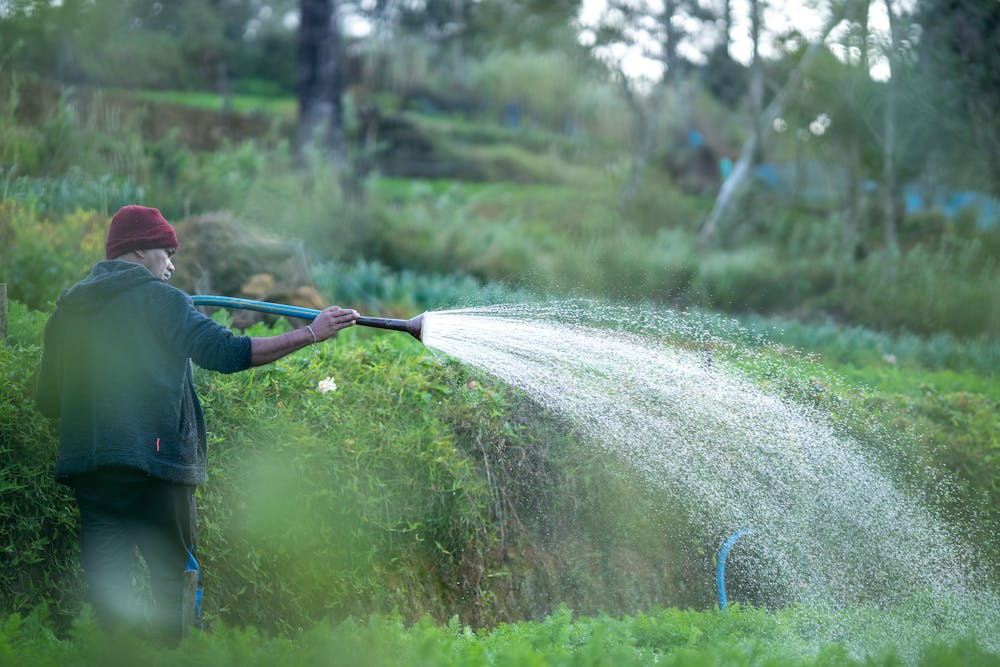
Common Water Sources
Most water supplies can be improved by restructuring the water with a garden hose attachment, structured water wand, or a similar product (read the science here).
Although some water sources require a robust purification system. Here we look at different water sources, purification options, and the best water for your garden!
Tap Water
Tap water is supplied by town/city municipalities and sourced from rivers, deep aquifers, or natural springs. Although, to ensure the water is safe they treat the water with chemicals that kill any waterborne harmful bacteria, parasites, and other pollutants. The water can have high concentrations of chlorine and other chemicals. Tap water should be filtered and revitalized before being used to water plants.
Purified Tap Water
An easy way to improve tap water is by adding a filtration system to purify.
Purified water benefits from activated carbon, clay, tourmaline, zeolite, and other minerals which do a great job of removing contaminants, harmful chemicals, and impurities.
You can opt for a steady-flow solution that’s commonly plumbed into your main water supply and requires replacement filters every 1-2 years. This is the best options for watering a garden or many indoor plants.
Alternatively, you can filter the water on your kitchen benchtop if you need a small amount – this is a good option for supporting a small number of indoor plants.
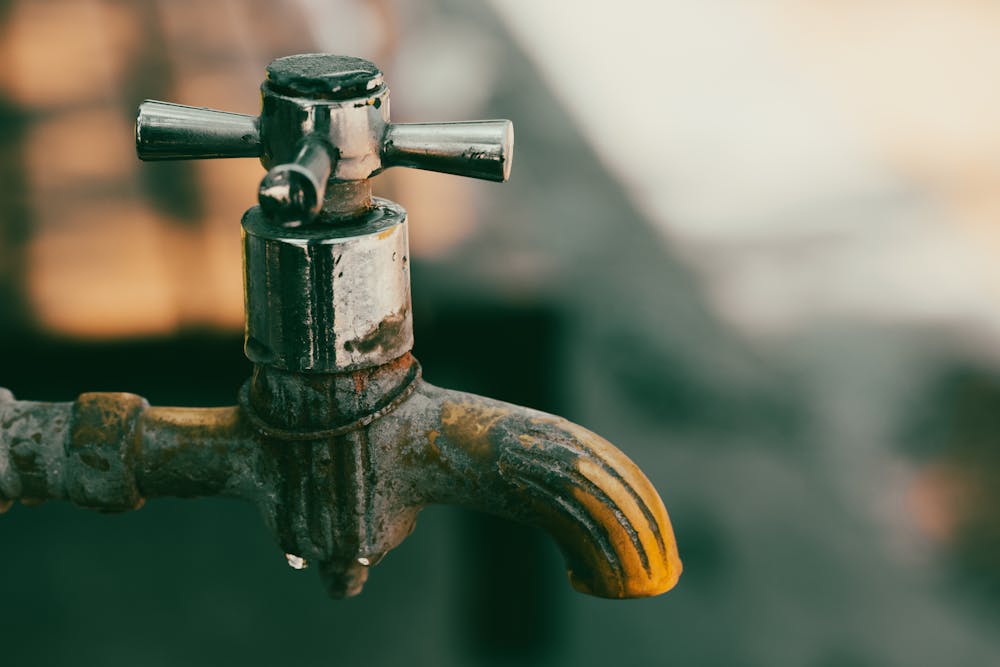
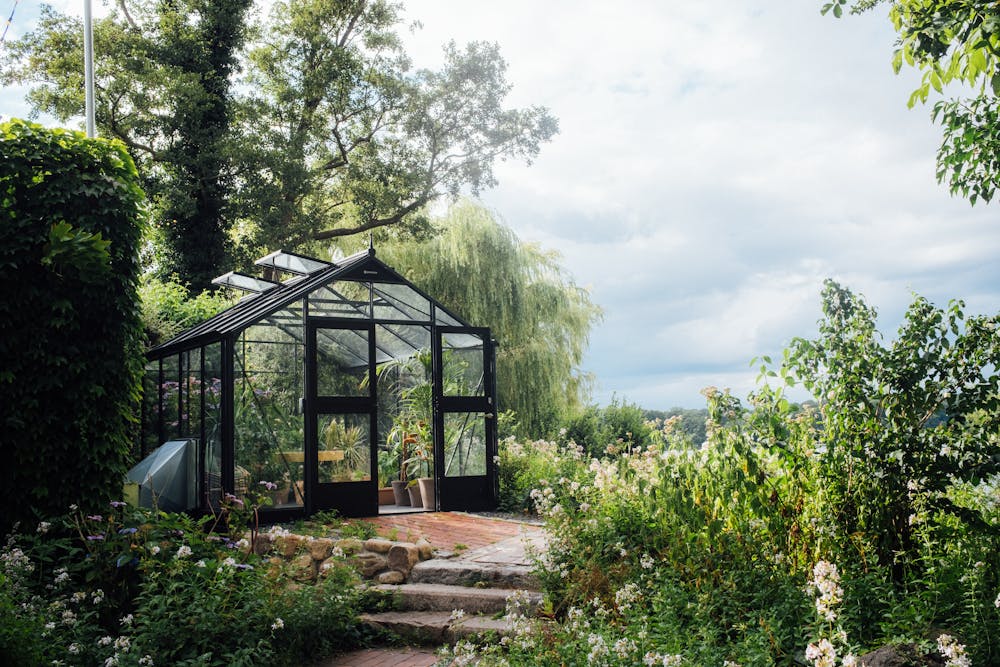
Rainwater
Rainwater experiences photosynthesis – evaporating into the atmosphere, condensing, and then falling through the sky where it can collect small amounts of healthy, natural minerals including nitrogen, phosphorus, potassium, calcium, magnesium, and sodium.
This water also has high levels of dissolved oxygen, which enables rapid root development, easier hydration, and better nutrient absorption.
Fresh rainwater is one of the best options for watering plants! Just be careful about contamination if collecting it from old corrugated iron, painted surface where the paint is falling off, or similar.

Natural Spring Water
If you are lucky enough to have land where water naturally comes out of the ground – you have practically struck gold!
As the water pushes up through the earth’s core, it collects trace minerals by running past rocks and mineral deposits. This water requires little-to-no purification and is perfect for watering plants.
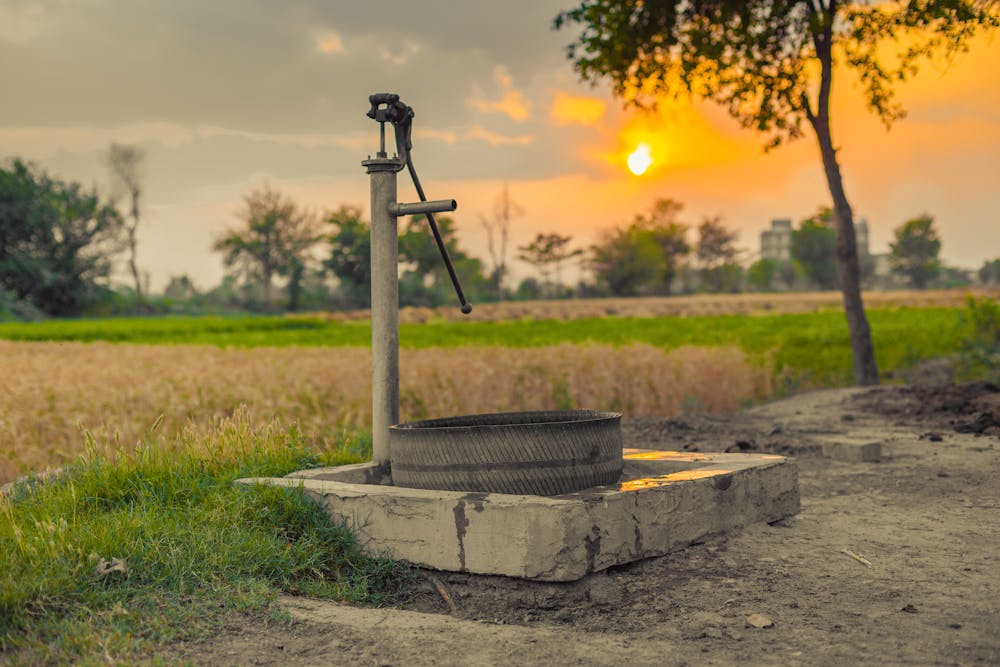
Distilled Water
Distilled water is one of the purest forms of water.
You can make this by evaporating water and catching the steam. Thus, distilled water removes minerals that are important for plant health. This water does not require purification, although if consumed regularly, you should add a touch of sea salt or trace mineral water drops to distilled water.
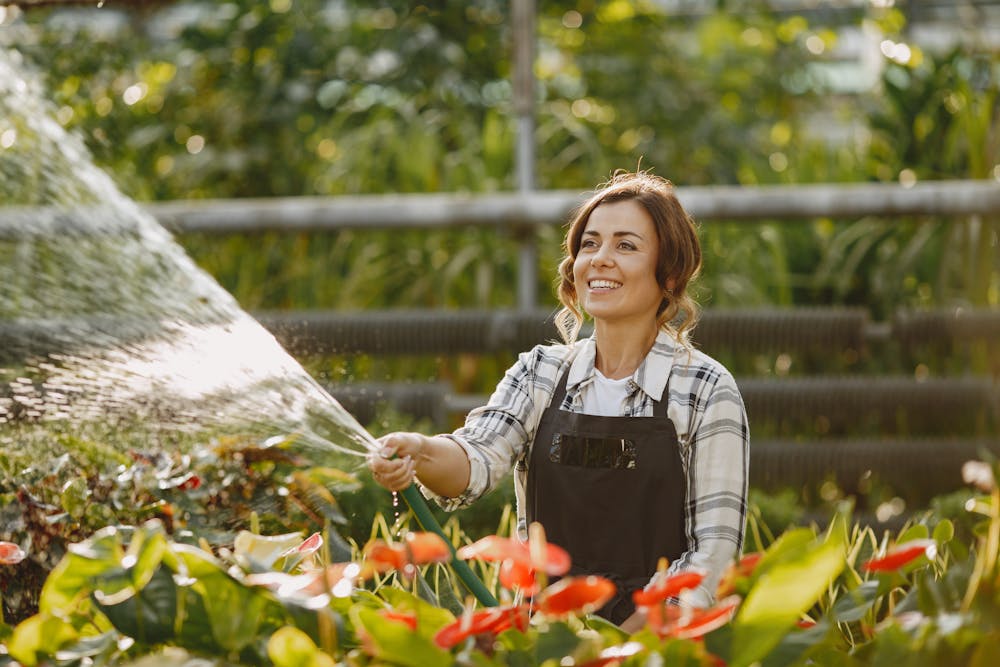
Reverse Osmosis Water (RO System)
This process uses a machine that evaporates the water and condenses it back to the solid form. Some reverse osmosis machines have a post-filter that remineralizes (which is important!). Without this remineralization process, the water can be detrimental to health since like humans, plants need trace minerals to process and absorb water.
Reverse osmosis water machines have different standards and outcomes – as well, filters have to be replaced every year. RO systems are good if your water source is very contaminated.
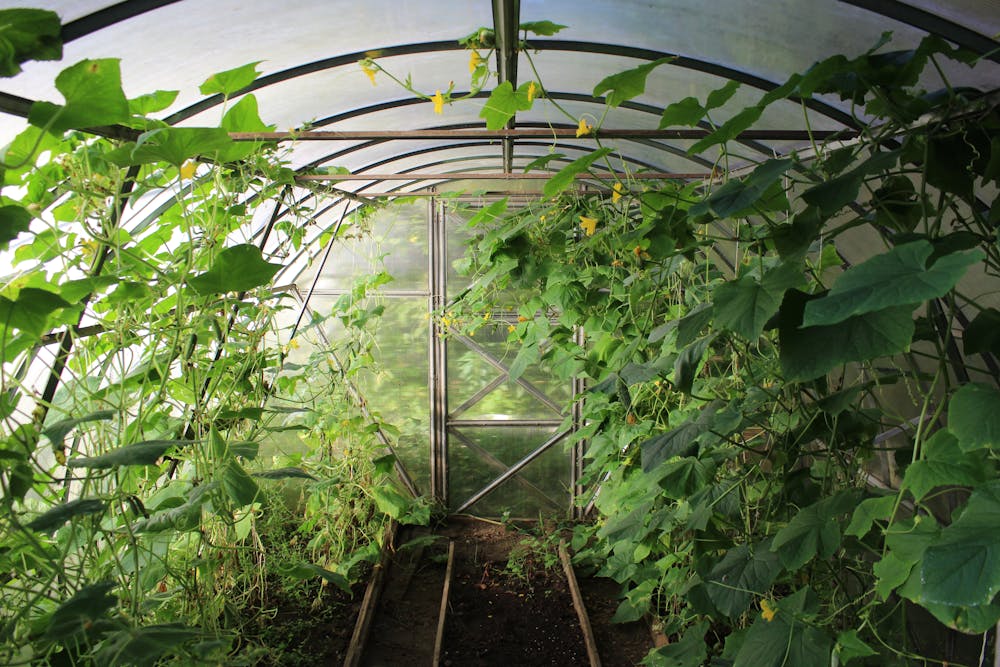
Other Water Sources
Some might opt for bottled water for feeding their plants – if doing so, it’s important to use bottled spring water or bottled water with a high mineral count (and ideally from a glass bottle). Most bottles will have a mineral breakdown on the label. This option is the most expensive purified water for plants!
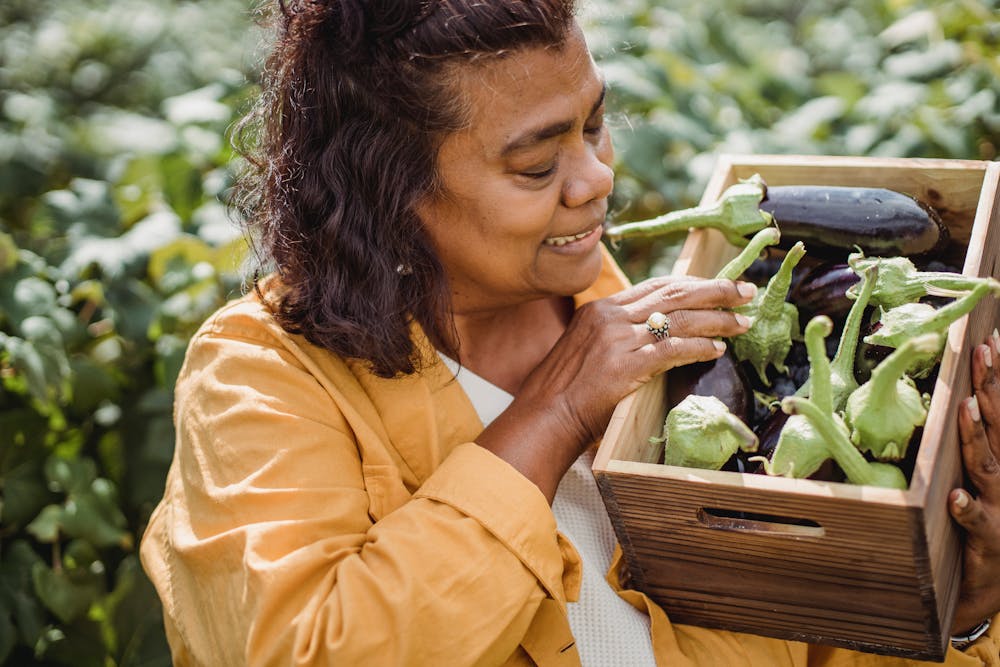
The Best Purified Water for Plants
Rainwater and natural spring water are the best types of water for plants.
They require minimal purifying since they don’t undergo chlorine and other treatment processes. Luckily, they’re full of healthy minerals that encourage good hydration, soil health, and vibrant plants!
If your plants lack optimal sunlight, are behind regular windows that are UV-blocking, or could do with a general boost of vitality, then you should utilize a structured water tool Read the science here!
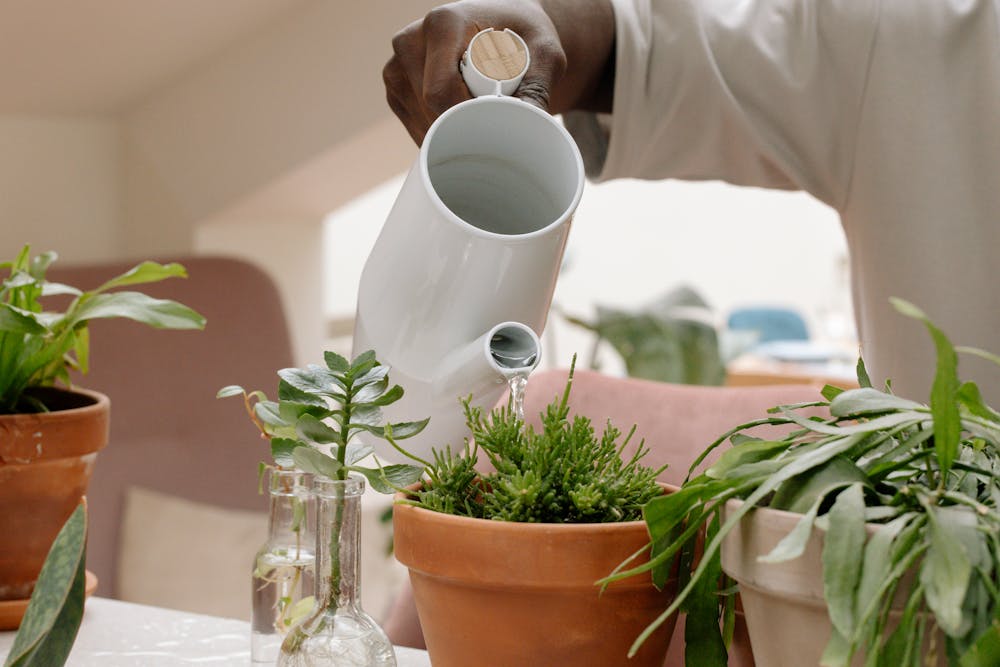
Improving Plant Hydration and Health
Using high-quality water can go beyond purification. High-quality water purification systems add trace minerals that are important for plant health and vitality.
Going beyond a water filter, you can re-energize and add structure. This is similar to natural processes including water trickling over rocks, such as granite with natural healthy properties, or going down a waterfall and benefiting from the waterfall effect.
You can also improve plant health by using other structured water, or hexagonal water techniques including sun-charging water or water vortexing. Your plants will also benefit from increased dissolved oxygen, balanced pH, and more!
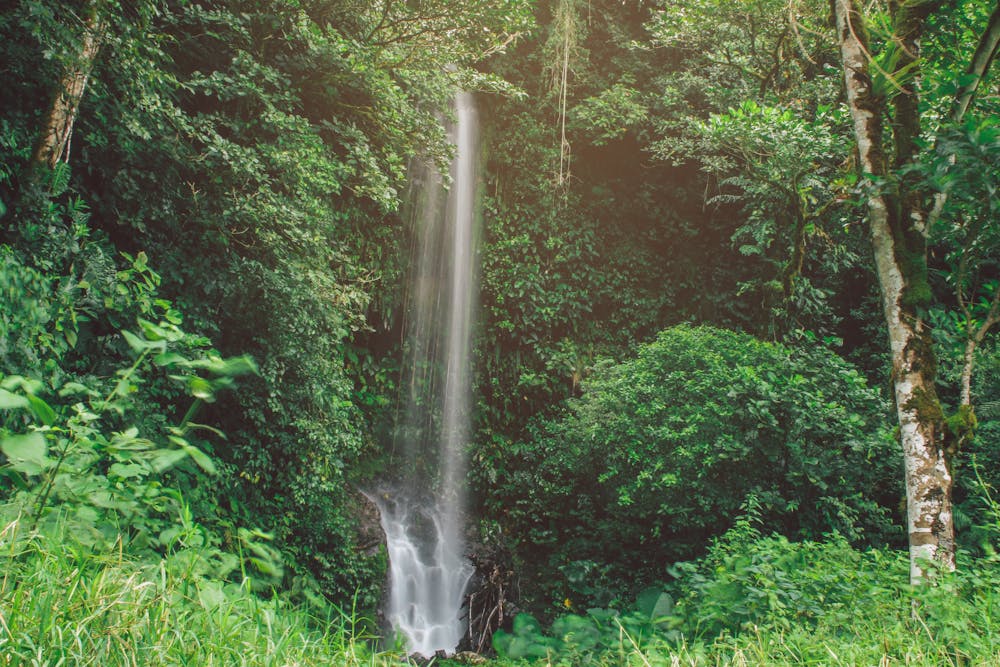
Structured Water Hose Attachment
A structured water device is the best way to improve purified water.
The Analemma garden hose attachment transforms ordinary tap water into amazing, highly structured water that offers a continuous supply and doesn’t require parts to be replaced. Yes, it lasts forever!
Best of all the products have scientifically proven benefits:
- Boosts plant vitality
- Improves bacterial diversity of the soil
- Assists nutrient processing and CO2 uptake
- significantly aids the photosynthetic process
- Protects plants from stress and other effects
You will notice plants becoming more resilient to changes in the weather. They experience less stress when inadequately watered, grow faster, and appear more vibrant.
The garden hose attachment makes the water bond in hexagonal clusters, similar to how ice forms. The devices allow for optimal plant hydration and nutrient transportation.
From almond farmers and grape growers to indoor tomato specialists and microgreens producers notice the sharp benefits of using a structured water hose attachment. Read the science and get yours today!
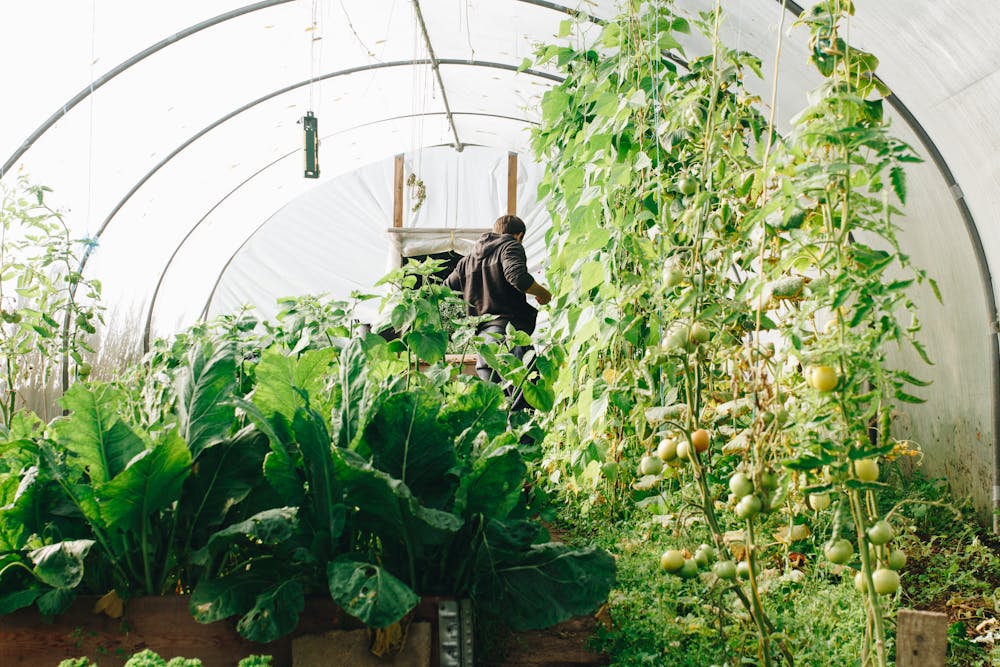
FAQs:
Tap water can be detrimental to plant health. Rainwater or natural spring water are the best options for watering gardens or indoor plants.
Municipal water is full of different chemicals including chlorine, chloramine, and bromine that are detrimental to the drinking water quality.
Yes, but if can smell chlorine you should let the water sit for 1-5 days to allow the gas to evaporate. Boiling the water for 15 minutes can speed up the process!
Yes, although opt for mineral-rich bottled water, and ideally from a glass bottle (not plastic!)
Yes, plants thrive when consuming purified water compared to regular tap water.

